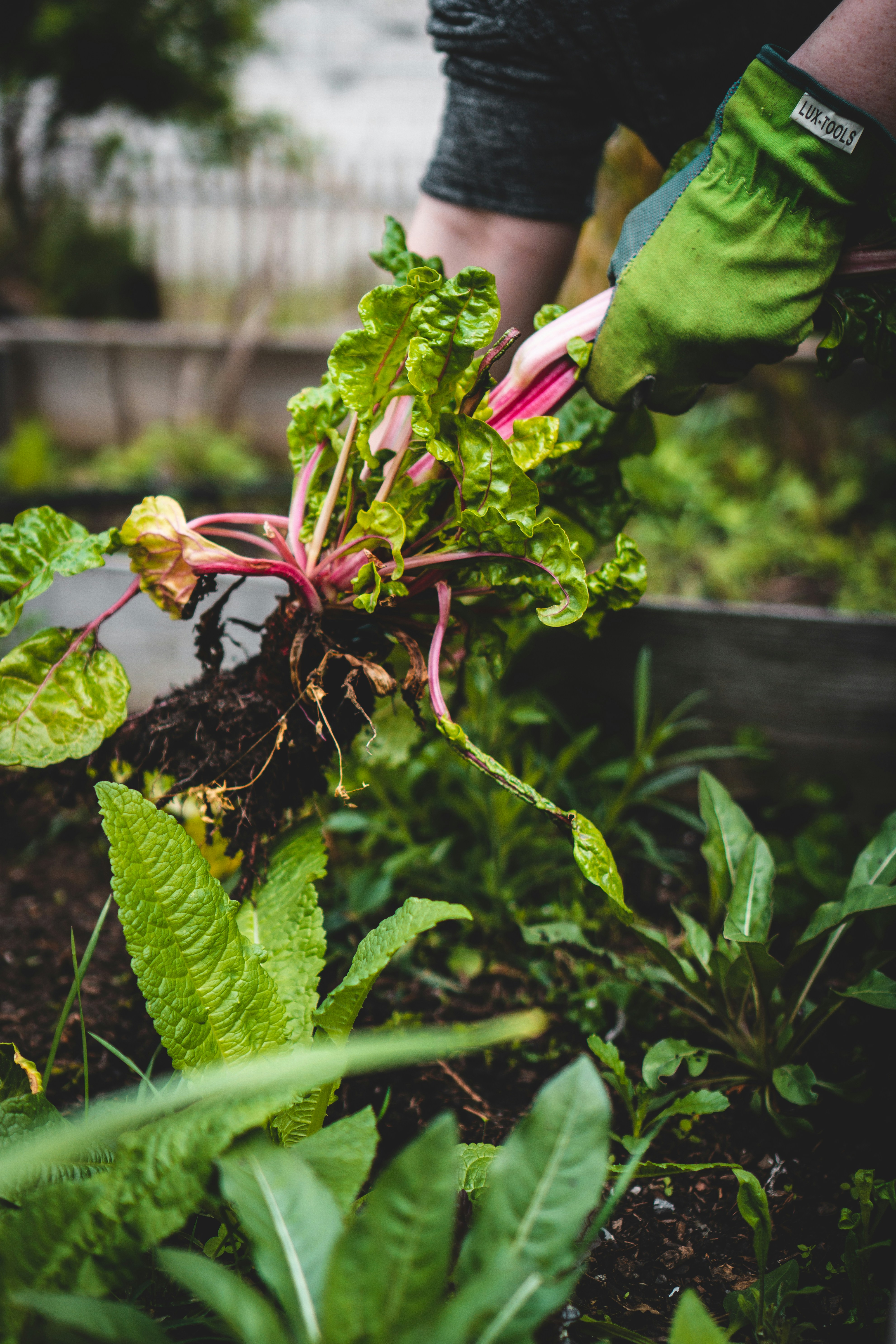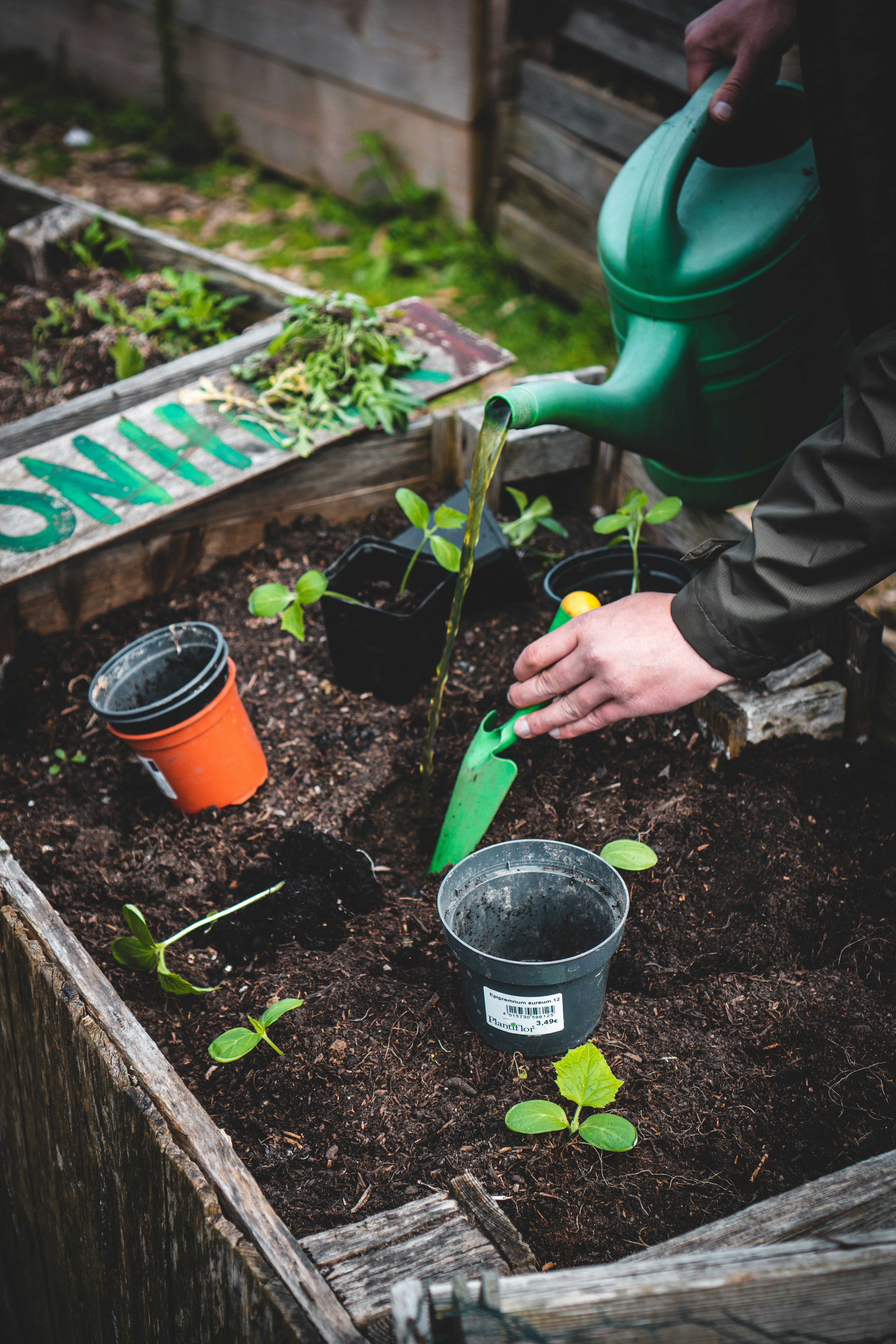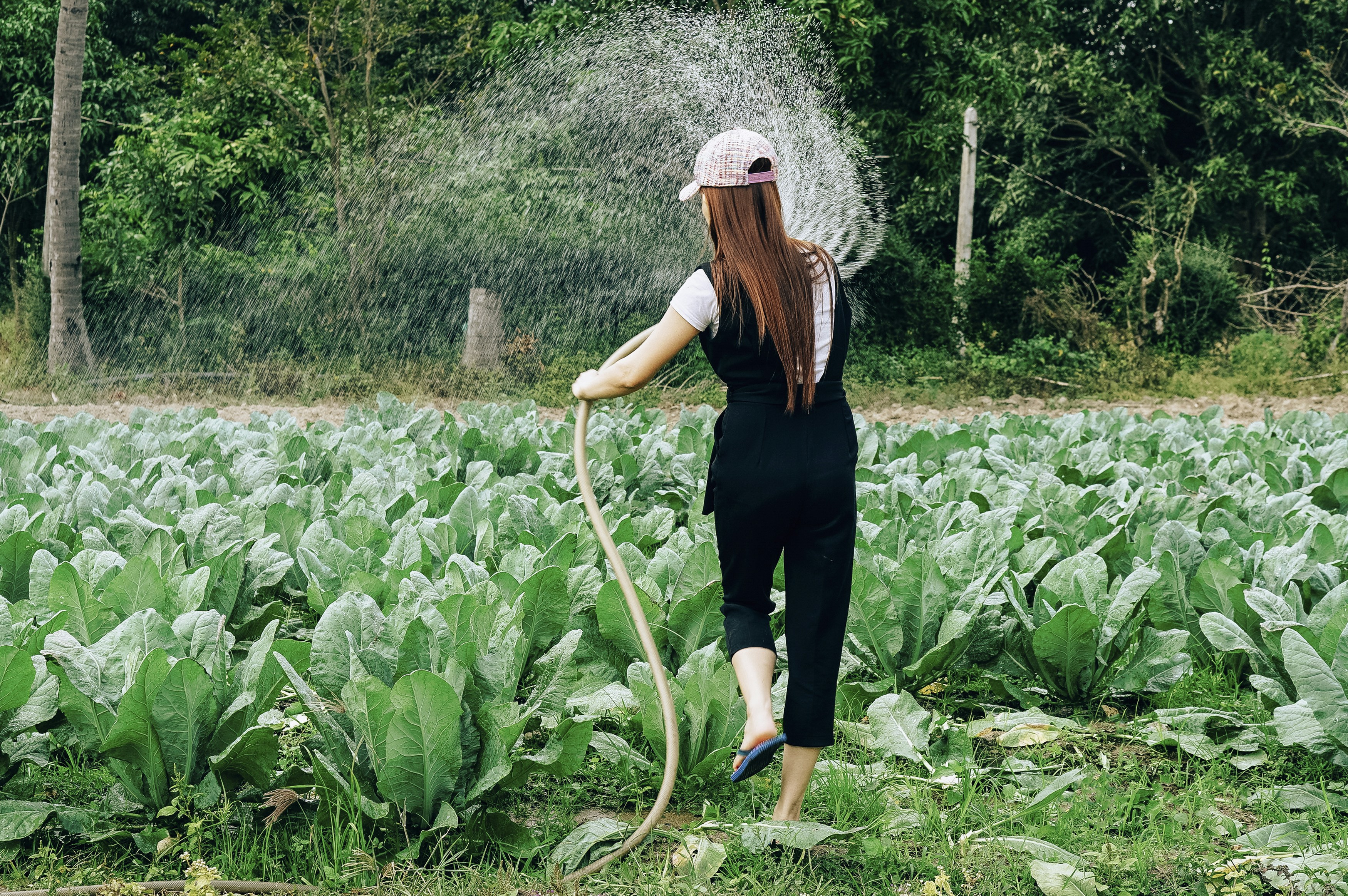👋 Click the mic button to talk to Alfred, the Todd's Seeds Gardening/Sprouting Expert – Feel free to ask him anything!
Ask Virtual Todd Anything - Click the Mic
Are unwanted garden pests ruining your beautiful plants and crops? If you’re wondering how to handle these pesky intruders without relying on harmful chemicals, look no further. In this article, you will discover effective and organic methods to tackle garden pests. From companion planting to natural predators, we’ve got you covered. Say goodbye to those unwanted visitors and hello to a thriving, pesticide-free garden.
Introduction
Dealing with garden pests can be a frustrating challenge for any gardener. Fortunately, there are effective organic methods to control and prevent pest damage in your garden. By implementing preventive measures, using organic pest control methods, attracting beneficial insects, practicing natural predator control, controlling weeds, and preventing diseases, you can maintain a healthy garden while avoiding the use of harmful chemicals.
Identifying Garden Pests
Before you can effectively deal with garden pests, it’s important to be able to identify them and recognize the damage they cause. Common garden pests include aphids, whiteflies, caterpillars, slugs, snails, and beetles. These pests can cause various forms of damage to your plants, such as chewing on leaves, sucking sap from plants, and transmitting diseases. By closely observing your plants and looking for signs of pest infestation, you can take the necessary steps to control them.
Common Garden Pests
Aphids are small insects that feed on the sap of plants, causing wilting and yellowing of leaves. Whiteflies are similar pests that also feed on plant sap and can spread diseases. Caterpillars are the larvae of moths and butterflies, and they chew on leaves, resulting in noticeable holes. Slugs and snails are slimy creatures that feed on a wide range of plants, leaving behind a trail of slime. Beetles, such as Japanese beetles, can devour plant foliage and flowers.
Recognizing Pest Damage
Once you know what pests to look out for, it’s important to recognize the damage they cause. Aphid-infested plants may have distorted growth, sticky residue on leaves, and sooty mold. Whiteflies leave behind white, powdery residue, and caterpillar damage is often evident by chewed leaves. Slugs and snails leave large irregular holes in leaves and can even eat seedlings. Beetle damage can result in skeletonized leaves and defoliation. By being able to identify the signs of pest damage, you can take immediate action to prevent further harm to your plants.
Preventive Measures
Prevention is key when it comes to dealing with garden pests organically. By implementing a few simple measures, you can significantly reduce the risk of pest infestations.
Implementing Crop Rotation
Crop rotation involves changing the location of different plant families each growing season. This is done to reduce the buildup of pests that are specific to certain plants. By rotating your crops, you disrupt the life cycle of pests and prevent them from becoming established in your garden. Additionally, different plant families have different nutrient requirements, and crop rotation helps maintain a healthy soil balance.
Practicing Companion Planting
Companion planting involves growing certain plants together for their mutual benefit. Some plants naturally repel pests or attract beneficial insects that prey on pests. For example, planting marigolds alongside your vegetables can deter aphids and nematodes. Similarly, planting herbs like basil and parsley near your tomato plants can attract predatory insects that feed on common tomato pests. By strategically planting companion plants, you can create a more pest-resistant garden.
Using Physical Barriers
Physical barriers can be highly effective in preventing pests from reaching your plants. Installing row covers or netting around your garden beds can help protect your plants from flying insects like whiteflies and moths. Additionally, erecting fences or chicken wire can keep larger pests like rabbits and deer from accessing your garden. By creating physical barriers, you can create a pest-free zone for your plants to thrive.
Organic Pest Control Methods
When preventive measures are not enough, organic pest control methods can be employed to combat garden pests without resorting to harmful chemicals.
Introducing Beneficial Insects
Beneficial insects are natural predators that feed on pests, keeping their populations in check. Ladybugs, lacewings, and praying mantises are examples of beneficial insects that can be introduced into your garden. You can purchase these insects from garden supply stores or create a suitable habitat to attract them naturally. By introducing beneficial insects, you can establish a natural balance in your garden ecosystem, reducing the need for chemical intervention.
Using Homemade Pest Sprays
Homemade pest sprays can be made using common household ingredients, providing a safe and effective method to control pests.
Garlic Spray
Garlic spray is a natural insect repellent that can be used to deter a wide range of pests. To make the spray, simply crush several cloves of garlic and mix them with water. Allow the mixture to steep overnight, strain it, and spray it directly onto plants. The strong odor of garlic acts as a deterrent to pests, effectively keeping them away from your garden.
Neem Oil Spray
Neem oil is derived from the neem tree and has powerful insecticidal properties. To make a neem oil spray, mix a tablespoon of neem oil with a few drops of dish soap and water. Shake the mixture well and spray it onto your plants. Neem oil works by suffocating pests and interfering with their feeding and reproductive abilities. It is particularly effective against aphids, whiteflies, and caterpillars.
Chili Pepper Spray
Chili pepper spray is an organic insect repellent that can be easily made at home. To make the spray, blend hot chili peppers with water and strain the mixture. Add a few drops of dish soap to the strained liquid and mix well. Spray the solution onto your plants, focusing on areas where pests are most prevalent. The capsaicin in chili peppers acts as a natural deterrent, making your plants less appetizing to pests.
Applying Organic Pest Repellents
Organic pest repellents are substances that repel pests without harming them or the environment. These repellents can be used to create barriers or create an unfavorable environment for pests.
Marigold Plants
Marigold plants are known to repel aphids, nematodes, and many other pests. By planting marigolds alongside your susceptible plants, you can help deter pests from your garden. Marigolds produce chemicals in their roots that have strong pest-repellent properties. Additionally, their vibrant flowers can attract beneficial insects, further aiding in pest control.
Coffee Grounds
Coffee grounds can be scattered around your garden to repel pests like slugs and snails. These pests are not fond of the texture of coffee grounds and tend to avoid crossing them. Additionally, coffee grounds can improve the soil quality by adding organic matter and improving drainage.
Citrus Peels
Citrus peels, such as those from oranges and lemons, can be used to deter pests in your garden. Simply place peels around the base of vulnerable plants or sprinkle shredded peels on top of the soil. The strong citrus scent acts as a natural repellent to pests like ants, aphids, and beetles.
Attracting Beneficial Insects
Beneficial insects play a vital role in maintaining a balanced ecosystem in your garden. By understanding their role and creating a suitable habitat, you can encourage their presence and enhance natural pest control.
Understanding the Role of Beneficial Insects
Beneficial insects, also known as natural enemies, act as biological control agents by preying on garden pests. Ladybugs, for example, feed on aphids and other soft-bodied insects, while lacewings consume a variety of pests, including aphids and caterpillars. By attracting and supporting beneficial insects, you can reduce the need for chemical pesticides and maintain a healthier garden ecosystem.
Creating a Habitat for Beneficial Insects
To attract beneficial insects, it’s important to provide them with a suitable habitat to live and reproduce. Planting a diverse range of flowering plants can provide a continuous food source for beneficial insects throughout the growing season. Additionally, creating structures like insect hotels or placing large rocks and logs in your garden can provide hiding places and nesting sites for beneficial insects. Incorporating water features, such as a small pond or birdbath, can also attract beneficial insects, as they require water for survival.
Natural Predator Control
Encouraging the presence of natural predators in your garden is another effective way to control garden pests without resorting to harmful chemicals.
Encouraging the Presence of Predators
Natural predators, such as birds, bats, and reptiles, can help keep pest populations under control. By providing food sources like bird feeders and nesting sites for birds, you can attract insect-eating birds that will help control common garden pests. Building bat boxes can encourage bats to nest in your garden, as they feed on a wide range of insects during their nightly flights. Additionally, creating a welcoming environment for reptiles, such as lizards, can provide a natural form of pest control.
Building Birdhouses and Bat Boxes
Building birdhouses and bat boxes is a simple yet effective way to provide shelter and attract these natural predators. Birdhouses should be placed in areas that offer protection from predators and has nearby food sources, such as trees or flowering plants. Bat boxes should be placed high above ground, preferably on poles or the sides of buildings, facing south or east to receive morning sunlight. Providing suitable habitats for predators can encourage them to stay in your garden and help keep pest populations in check.
Weed Control
Weeds not only compete with your plants for nutrients and water but can also provide hiding places for garden pests. By implementing effective weed control measures, you can reduce the risk of pest infestations in your garden.
Manual Weed Removal
The most basic method of weed control is manually pulling or hoeing them from the soil. It’s important to remove weeds when they are young before they have a chance to produce seeds and spread. Regularly inspect your garden beds and remove any emerging weeds to prevent them from becoming a nuisance.
Mulching with Organic Materials
Mulching is an effective way to control weeds while improving soil moisture retention and temperature regulation. Organic mulches, such as straw, wood chips, or shredded leaves, can be spread around your plants to create a protective barrier against weeds. Additionally, organic mulches gradually break down and enrich the soil with nutrients, improving overall plant health. Make sure to apply mulch to a depth of around 2-4 inches, taking care not to place it directly against plant stems to prevent moisture-related issues.
Disease Prevention
Diseases can quickly spread and devastate your garden if not properly managed. By following good gardening practices and employing organic disease prevention methods, you can reduce the occurrence of plant diseases in your garden.
Maintaining Proper Plant Nutrition
Plants that are stressed or lacking essential nutrients are more susceptible to diseases. By providing your plants with the proper nutrition, you can boost their natural resistance to diseases. Use organic fertilizers and compost to enrich the soil and provide a balanced supply of nutrients. Additionally, regularly monitor the pH levels of your soil to ensure your plants are getting the optimal nutrient uptake.
Using Compost and Organic Fertilizers
Compost and organic fertilizers not only enhance soil fertility but also promote beneficial microbial activity. This promotes a healthy soil ecosystem, which in turn supports strong and disease-resistant plants. Compost can be made from kitchen scraps and garden waste, while organic fertilizers can include materials like bone meal, blood meal, and fish emulsion. By incorporating these organic amendments into your garden, you can maintain healthy plants that are less susceptible to diseases.
Practicing Good Sanitation
Practicing good sanitation in your garden is crucial to prevent the spread of diseases. Regularly remove diseased plant material, fallen leaves, and any debris that can harbor pests or diseases. Properly dispose of or compost the removed materials. Additionally, sanitize your gardening tools to prevent the transmission of diseases from one plant to another. By practicing good sanitation, you can minimize the risk of diseases spreading throughout your garden.
In conclusion, by implementing preventive measures, using organic pest control methods, attracting beneficial insects, practicing natural predator control, controlling weeds, and preventing diseases, you can deal with garden pests organically. With these methods, you can create a healthy and thriving garden while minimizing the use of harmful chemicals. By taking a proactive and holistic approach to pest management, you can enjoy the beauty and abundance of your garden while supporting a balanced and sustainable ecosystem. So roll up your sleeves, put on your gardening gloves, and get ready to tackle those pests the organic way!





